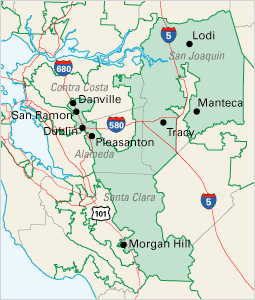civvver
Deity
- Joined
- Apr 24, 2007
- Messages
- 5,855
We got pot, gerrymandering and voter registration laws! A lot of interesting stuff! And I am undecided on two of them.
I really have no idea how to go on this one. I've listened to radio interviews of people for and against. Supposedly drug arrests in colorado have remained about the same, so legalizing pot hasn't really helped out minority convictions as much as people hoped. I've also heard that total impaired driving has gone up. But on the other hand it seems good for revenues and alcoholism is down.
This proposal is very difficult because it's written into the constitution, so hard to repeal if it sucks, and random registered voters? They might not be remotely qualified to do the redistricting and when selected by the secretary of state I don't know how much faith I have in them being totally random. But I do like the idea of just drawing big squares on a map to make districts instead of the mess we have now to keeps parties in power. And all the big business republicans hate this proposal which makes it all the more attractive to me. However there aren't details on the appropriation of funds for the commission. Like how much money do they get to do this?
This seems like a no brainer yes to me. Why aren't you automatically registered to vote anyway? Voting shouldn't be burdensome.
All info from here:
https://www.mlive.com/expo/news/erry-2018/10/c906e5e38b2805/a-complete-guide-to-michigans.html
Proposal 1:
A proposed initiated law to authorize and legalize possession, use and cultivation of marijuana products by individuals who are at least 21 years of age and older, and commercial sales of marijuana through state-licensed retailers
This proposal would:
Should this proposal be adopted?
- Allow individuals 21 and older to purchase, possess and use marijuana and marijuana-infused edibles, and grow up to 12 marijuana plants for personal consumption.
- Impose a 10-ounce limit for marijuana kept at residences and require amounts over 2.5 ounces to be secured in locked containers.
- Create a state licensing system for marijuana businesses and allow municipalities to ban or restrict them.
- Permit retail sales of marijuana and edibles subject to a 10% excise tax, dedicated to implementation costs, clinical trials, schools, roads, and municipalities where marijuana businesses are located.
- Change several current violations from crimes to civil infractions.
[ ] YES
[ ] NO
I really have no idea how to go on this one. I've listened to radio interviews of people for and against. Supposedly drug arrests in colorado have remained about the same, so legalizing pot hasn't really helped out minority convictions as much as people hoped. I've also heard that total impaired driving has gone up. But on the other hand it seems good for revenues and alcoholism is down.
Proposal 2:
A proposed constitutional amendment to establish a commission of citizens with exclusive authority to adopt district boundaries for the Michigan Senate, Michigan House of Representations and U.S. Congress, every 10 years
This proposed constitutional amendment would:
Should this proposal be adopted?
- Create a commission of 13 registered voters randomly selected by the Secretary of State:
- 4 each who self-identify as affiliated with the 2 major political parties; and
- 5 who self-identify as unaffiliated with major political parties.- Prohibit partisan officeholders and candidates, their employees, certain relatives, and lobbyists from serving as commissioners.
- Establish new redistricting criteria including geographically compact and contiguous districts of equal population, reflecting Michigan's diverse population and communities of interest. Districts shall not provide disproportionate advantage to political parties or candidates.
- Require an appropriation of funds for commission operations and commissioner compensation.
[ ] YES
[ ] NO
This proposal is very difficult because it's written into the constitution, so hard to repeal if it sucks, and random registered voters? They might not be remotely qualified to do the redistricting and when selected by the secretary of state I don't know how much faith I have in them being totally random. But I do like the idea of just drawing big squares on a map to make districts instead of the mess we have now to keeps parties in power. And all the big business republicans hate this proposal which makes it all the more attractive to me. However there aren't details on the appropriation of funds for the commission. Like how much money do they get to do this?
Proposal 3:
A proposal to authorize automatic and Election Day voter registration, no-reason absentee voting, and straight ticket voting; and add current legal requirements for military and overseas voting and postelection audits to the Michigan Constitution
This proposed constitutional amendment would allow a United States citizen who is qualified to vote in Michigan to:
Should this proposal be adopted?
- Become automatically registered to vote when applying for, updating or renewing a driver's license or state-issued personal identification card, unless the person declines.
- Simultaneously register to vote with proof of residency and obtain a ballot during the 2-week period prior to an election, up to and including Election Day.
- Obtain an absent voter ballot without providing a reason.
- Cast a straight-ticket vote for all candidates of a particular political party when voting in a partisan general election.
[ ] YES
[ ] NO
This seems like a no brainer yes to me. Why aren't you automatically registered to vote anyway? Voting shouldn't be burdensome.
All info from here:
https://www.mlive.com/expo/news/erry-2018/10/c906e5e38b2805/a-complete-guide-to-michigans.html












